Warsaw is the capital of Poland and its largest city. Warsaw
is the city we flew in and out of for our 13-day Poland vacation. We spent two
full days in Warsaw and it was the perfect amount of time to see and taste the
highlights of Warsaw.
Warsaw has a historic, old city feel even though 85% of
Warsaw’s historic center was destroyed in World War II. Unlike other European
cities that sustained damage throughout the war from various bombings, Warsaw
was deliberately destroyed by the Nazis as punishment for the Warsaw Uprising. Many
buildings were meticulously rebuilt, some with the help of paintings of Warsaw
from the 1700s by Venetian painter Bernardo Bellotto, the nephew of Canaletto
and often referred to as Canaletto. Replicas of Canaletto’s paintings are
scattered around Warsaw.
Recommended Itinerary for Two Days in Warsaw – Day One
We started our first day in Warsaw with a stroll down
Warsaw’s Royal Route, a one-kilometer route that passes multiple
churches and palaces.
The Roman Catholic Church of the Visitants is the
only church in the area that survived World War II. Poland’s famous composer Frédéric
Chopin was an organist at this church briefly. Across the street is one of the
Canaletto painting replicas.
Next is the Holy Cross Church, where Chopin’s heart
is encased in one of the pillars inside. While Chopin died in Paris, he wanted
part of him to be buried in his home country. Outside of the church is a statue
of Jesus bearing his cross. This is one of the many buildings that were destroyed
but rebuilt in the same style with some help from a Canaletto painting.
Another Polish celebrity is Nicolaus Copernicus, a
mathematician and astronomer. The Copernicus Monument is on the Royal
Route. Near the monument is another Canaletto painting replica and one of many
benches that play Chopin’s music with the push of a button.
We turned off of the Royal Route to walk over to the Palace
of Culture and Science, which at one point was the tallest building between
Frankfurt and St. Petersburg. If you didn’t know, you might think the building
is old and historic. However, it was built in the 1950s as a ‘gift’ by Stalin
for Poland in an older style. It is free to enter the ground-floor lobby, which
feels like 1950s Soviet Union.
Nearby is Zlotta 44, a skyscraper designed by Daniel
Libeskind, the world-renowned architect who redeveloped the 9/11 site in New
York City. The shape of the building evokes an eagle, which is the symbol of
Poland.
Next, we walked to the National
Museum of Warsaw which has a wonderful collection of 19th
century Polish art that depicts daily life. There is also a collection of
Medieval Art with altarpieces from churches around Poland. The museum also
holds modern and postmodern Polish art.
After our museum visit, we joined an Eat Polska food
tour to get acquainted with Polish cuisine. Food tours are one of our
favorite things to do early on in a trip so we know what to look for and eat
through the rest of the vacation. On our food tour, we visited five different
places and ate lots of traditional dishes including bread spread with smalec
chased with a shot of vodka, two types of soup, zapiekanka, potato dumplings,
breaded porkchop, and a couple sweets. In addition to learning about Poland’s cuisine,
we learned about Poland’s food history and how it was impacted by its time
under Soviet rule.
Since we didn’t need any dinner after filling up with Polish
food on our food tour, we ended our day with a piano concert at Chopin Salon. Chopin
Salon holds a concert every night featuring the music of Poland’s famous
composer. Each night features a different pianist. Sometimes the piano is
accompanied by another instrument or a singer. We were served a glass of wine
and a slice of apple pie to enjoy during the concert.
Recommended Itinerary for Two Days in Warsaw – Day Two
Our second full day in Warsaw was focused on Warsaw’s Old
Town, the resistance, and Jewish history.
St. Anne’s Church has an altar that survived World
War II. Next door to the church is a tower that provides a view of Warsaw’s Old
Town after climbing 150 steps.
The Royal
Castle on Castle Square was destroyed by the Nazis and carefully
restored decades later. Luckily much of what was in the castle was removed for
safekeeping before its destruction, so many of the furnishings seen in the
castle today are original.
St. John’s Cathedral is the oldest church in Warsaw.
It was built in the 1300s. St. John’s Cathedral is also important because
Poland’s constitution was consecrated there in 1791. It was also a battleground
of the 1944 Warsaw Uprising where many were killed when a tank drove into the
church and exploded.
We stopped for a lunch of pierogis and walked to Old Town
Market Square. Not one single building remained of this square in 1945, and
it was rebuilt in 1956. The buildings were intentionally built to lean out to
recreate how the original buildings looked.
The Museum of
Warsaw is in Old Town Market Square. If you’re not a museum person, I
would recommend skipping this one. There is a lot of stuff to look at. However,
Romeo disagrees and is glad we visited the museum.
We left the Old Town and walked to the Warsaw Uprising
Monument, which commemorates the Warsaw Uprising of 1944 where members of
the resistance attempted to end the Nazi occupation.
A short distance away is the Monument to the Ghetto
Heroes, which commemorates the Jewish uprising. This uprising occurred the
year before the Warsaw Uprising in resistance to the Nazi order to liquidate
the Warsaw ghetto.
The POLIN
Museum of the History of Polish Jews is an excellent museum covering a
thousand years of Jewish history. We recommend renting the audio guide.
The Path of the Remembrance is a series of three
black stone memorials to the heroes of the uprising and they lead to a bunker
where 100 organizers of the uprising hid and committed suicide when the Nazis
found them.
We walked over to the Umschlagplatz Monument which
marks the spot where Nazis brought Jewish families and loaded them onto trains headed
to Treblinka or Auschwitz.
We had already visited quite a few spots on our second day,
but we had just enough time to visit the Warsaw
Uprising Museum. This is the one place in our Warsaw two-day itinerary
that could not be reached by walking, so we took an Uber. The Warsaw Uprising
Museum celebrates the heroes of the uprising.
Recommended Restaurants in Warsaw
ELIXIR by Dom Wódki
is a Michelin-rated restaurant and was our favorite in Warsaw. This restaurant
combines Poland’s iconic vodka with its regional dishes. Each dish on the menu
has two recommended vodka pairings, one to sip with the dish and one to enjoy
as a shot that works as a palate cleanser in preparation for the next dish.
Stolica
is in Warsaw’s Old Town and serves elevated interpretations of traditional
dishes. Dining here feels like enjoying an old-school fancy dining experience
at a price that’s quite affordable, especially for what you get. I had caviar,
duck, and the famous ?ubrówka Bison Grass Vodka. It was the perfect final meal of
our two weeks in Poland.
We visited Kamanda
Lwowska on our food tour. This restaurant serves traditional
Polish food in the traditional Polish style served in traditional Polish
surroundings and is definitely worth a visit if you won’t already be visiting
it on a food tour.
We visited GO?CINIEC
Polskie Pierogi for lunch when in Warsaw’s old town for pierogis. The
menu is full of pierogis of all different kinds. You can mix and match and have
them steamed or fried.
Recommended Hotels in Warsaw
We stayed three nights at the Hotel
Bristol and it was our favorite hotel in Poland. The Hotel Bristol is
a historic luxury hotel that originally opened in 1901. The hotel
miraculously survived being destroyed in World War II and was used by the Nazis
as a hotel during the war.
The hotel’s central location was convenient for walking to
almost all of Warsaw’s points of interest and recommended restaurants. We
booked an executive king room that was spacious and very comfortable. The hotel
has two bars and two restaurants. During our stay we had drinks at Gin Bar
Lane’s and the Column Bar and breakfast at the Café Bristol.
We arrived late in the evening, after many restaurants were
already closed, and were pleasantly surprised to learn that Hotel Bristol
offers room service, with a menu of Polish dishes. It was such a relief to be
able to have a good meal plus get our first taste of Poland’s flavorful soups.
We also stayed one night at the Renaissance
Warsaw Airport Hotel because we had an early morning flight and
returned to Warsaw from Krakow the day before our flight home. The Renaissance
Warsaw Airport Hotel is extremely convenient for early morning flights because
it is literally across the street from the airport terminal. We stayed in a
standard king room and had a view of the tarmac, which is fun for fans of
airports and airplanes. We would not recommend staying here for more than one
night as it’s a 20- to 30-minute Uber ride or 45-minute to one-hour bus ride
into the city center.
Both recommended Warsaw hotels are Marriott properties.
Warsaw’s resilience, cultural richness, and culinary
treasures make it a must-visit destination when planning a Poland vacation.
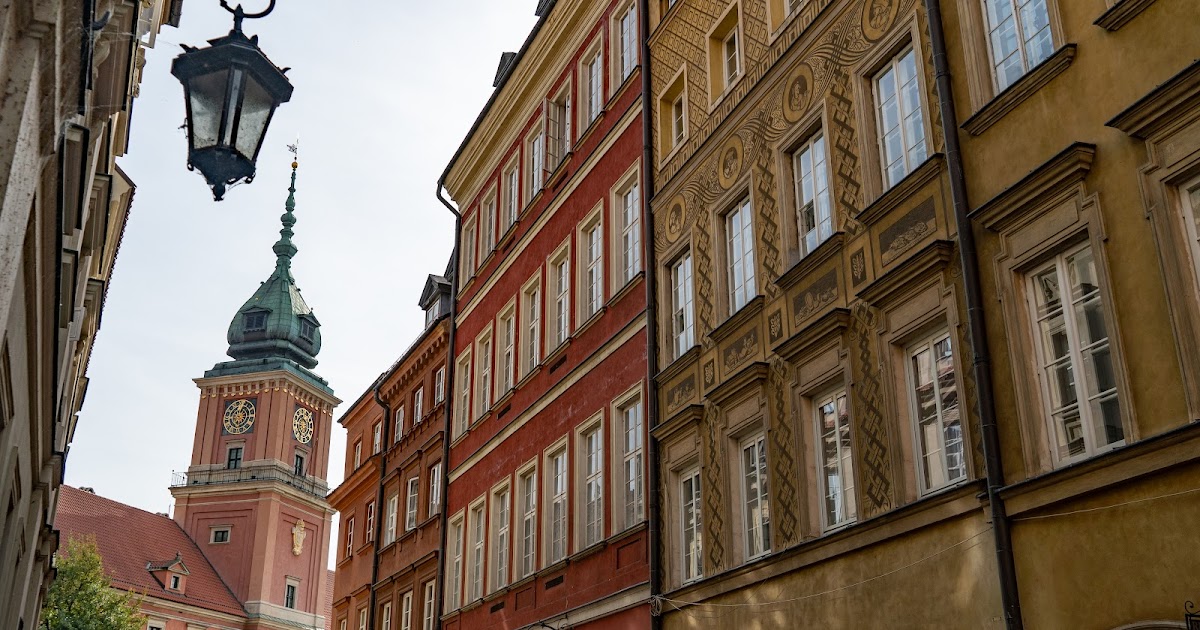
.jpg)
.jpg)
.jpg)

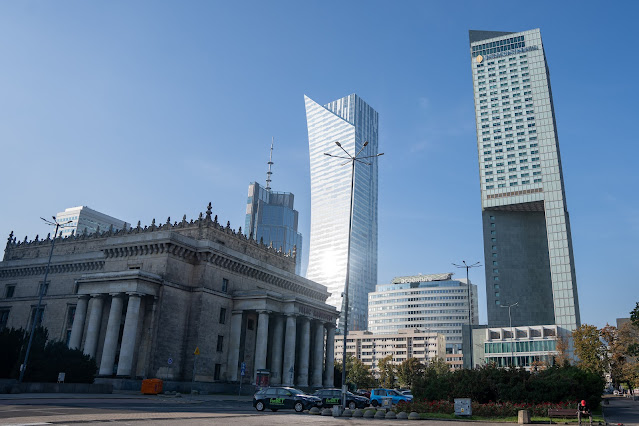


-Enhanced-NR.jpg)
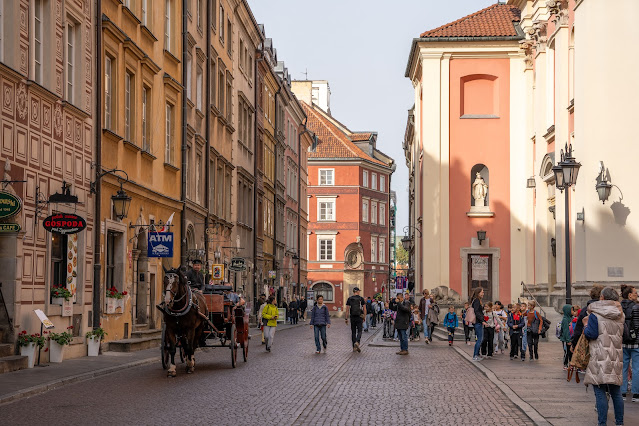
.jpg)
.jpg)
.jpg)

.jpg)


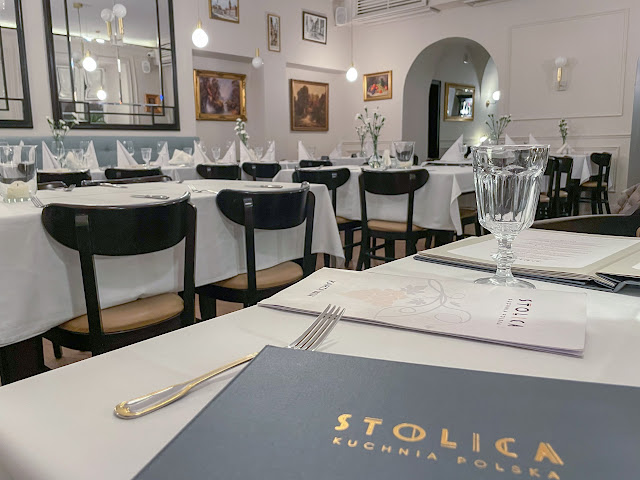
.jpg)
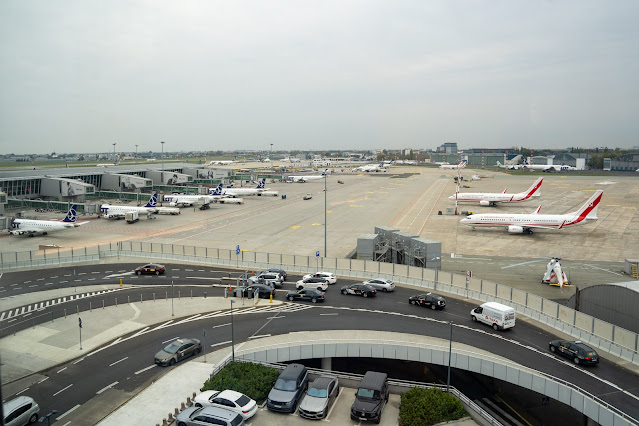
.jpg)